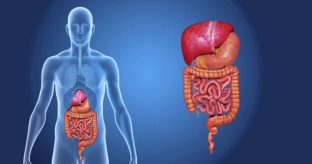In our time, it often happens that, hurrying to work, we do not have time to have breakfast, and in the flow of affairs we simply forget to have a snack or even lunch, postponing the meal to a more convenient time for us. There can be many reasons why we fail to eat at one time or another of the day – the life of a modern person is so full. However, a regular and healthy diet is necessary for the body to function properly, otherwise we risk experiencing the side effects of a chaotic diet. What kind of problems can arise if you regularly skip meals, estet-portal.com will tell in this article.
Why do experts advise eating every 3-4 hours?
The exact time of eating varies greatly depending on the time of awakening a person, the individual characteristics of his body and other factors. But most experts agree that nutrients should be supplied to the body regularly. Dr. Brigitte Zeitlin, M.P.H. (USA) explains:
Nutrients must be supplied regularly.
"Regular meals throughout the day keep metabolism high, prevent energy depletion, help you stay focused and control your weight, greatly reducing the risk of further overeating."
This does not mean that one missed meal will instantly disable the body and disrupt metabolism, however the reaction of the body to the lack of fuel can be different.
Below estet-portal.com will tell you:
- why you shouldn't skip meals;
- what changes occur with irregular meals;
- what problems can occur if you skip meals regularly.

What happens if you skip meals?
The main fuel for our brain is glucose, which we get from food (mainly carbohydrates).
Complex carbohydrates, found in fruits, vegetables and whole grains, are the most nutritionally beneficial sources of glucose because they take longer to digest than processed carbohydrates. In addition, such products contain a lot of useful substances for the body.
If we often skip meals, we cut off the constant intake of carbohydrates, which can result in a significant drop in blood sugar levels. And low blood sugar makes us lethargic, irritable and reduces the ability to concentrate.
What changes happen when you skip meals?
Decrease in concentration and productivity in the workplace comes with constant thoughts about food. In English, there is a word hangry (hungry + angry), which is used to describe a person angry from hunger.
The levels of the hunger hormone leptin and the satiety hormone ghrelin signal the need to stop or start eating.
When we're hungry, we subconsciously crave sugary foods to raise our blood sugar levels. However, a carbohydrate snack devoid of healthy fats and proteins leads to a rapid spike in sugar levels and a subsequent drop.
Choosing unhealthy food – this is one problem associated with irregular meals. The second problem is the tendency to overeat – so the body feeds to make up for the lack of nutrients that it did not receive throughout the day. Another reason for overeating is the rapid absorption of food, which prevents the body from responding to the consumed foods with a feeling of fullness in time. As a result, many people gain weight.
What are the problems with skipping meals regularly?
People who eat erratically and regularly skip meals are at risk of disturbing their metabolism. It is difficult to notice such changes, because they occur gradually. If circumstances force you to refuse a timely breakfast, lunch or dinner a couple of times a week, this will not harm the body. However, if the irregular nature of the diet develops into a habit, after a few months or even years you risk experiencing metabolic disorders.
Also, if you eat irregular meals, you may not get enough protein to maintain normal muscle mass, which is necessary for accelerating metabolism and leading an active lifestyle.
The frequency of eating, according to estet-portal.com, is individual for each person, however, the body must receive nutrients regularly, therefore skipping meals is not recommended. Therefore, when going to work, do not forget to take with you products for a healthy snack – They will help control hunger and avoid overeating. Be sure to listen to your body – he will tell you when it's time to eat.






Add a comment